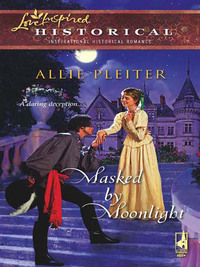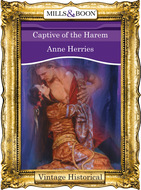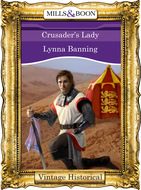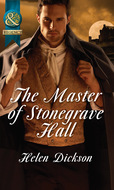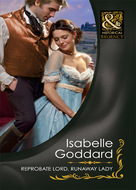Książki nie można pobrać jako pliku, ale można ją czytać w naszej aplikacji lub online na stronie.
Czytaj książkę: «Masked by Moonlight»
“It seems to me,” Georgia said, “that we are dealing with a most extraordinary fellow.
Quite resourceful. Very noble, but a bit reckless.”
If God himself had asked Matthew how he would like to be remembered, those were very nearly the words Matthew would use. And here Georgia was using them about the Bandit—who was, and then was not, Matthew Covington. It was an oddly powerful sensation.
Made more so by what Matthew saw hiding behind Georgia’s eyes—an admiration for the recklessness that came close to affection for the dashing hero.
But the Bandit was reckless. Matthew Covington could not be. Dashing midnight bravery was a luxury for imaginary men, not Covingtons.
Still, he would do it again. To watch her talk of it with that look on her face. To know that she held a part of him—even an invented part—in such esteem. It was enough.
ALLIE PLEITER
Enthusiastic but slightly untidy mother of two, Allie Pleiter writes both fiction and non-fiction. An avid knitter and non-reformed chocoholic, she spends her days writing books, drinking coffee, and finding new ways to avoid housework. Allie grew up in Connecticut, holds a BS in Speech from Northwestern University, and spent fifteen years in the field of professional fundraising. She lives with her husband, children and a Havanese dog named Bella in the suburbs of Chicago, Illinois.
Allie Pleiter
Masked by Moonlight
MILLS & BOON
Before you start reading, why not sign up?
Thank you for downloading this Mills & Boon book. If you want to hear about exclusive discounts, special offers and competitions, sign up to our email newsletter today!
Or simply visit
Mills & Boon emails are completely free to receive and you can unsubscribe at any time via the link in any email we send you.
For now we see in a mirror, darkly; but then face to face: now I know in part; but then shall I know fully even as also I was fully known. But now abideth faith, hope, love, these three; and the greatest of these is love.
—1 Corinthians 13:12–13
For Georgia
Dream big dreams, little one
Contents
Acknowledgment
Chapter One
Chapter Two
Chapter Three
Chapter Four
Chapter Five
Chapter Six
Chapter Seven
Chapter Eight
Chapter Nine
Chapter Ten
Chapter Eleven
Chapter Twelve
Chapter Thirteen
Chapter Fourteen
Chapter Fifteen
Chapter Sixteen
Chapter Seventeen
Chapter Eighteen
Chapter Nineteen
Chapter Twenty
Chapter Twenty-One
Chapter Twenty-Two
Chapter Twenty-Three
Chapter Twenty-Four
Chapter Twenty-Five
Chapter Twenty-Six
Chapter Twenty-Seven
Chapter Twenty-Eight
Chapter Twenty-Nine
Chapter Thirty
Chapter Thirty-One
Chapter Thirty-Two
Chapter Thirty-Three
Chapter Thirty-Four
Chapter Thirty-Five
Chapter Thirty-Six
Chapter Thirty-Seven
Chapter Thirty-Eight
Chapter Thirty-Nine
Chapter Forty
Chapter Forty-One
Chapter Forty-Two
Chapter Forty-Three
Chapter Forty-Four
Epilogue
Questions for Discussion
Acknowledgment
I was blessed to have loads of great help on this book, and any blame for historical errors you find should lay squarely on my own shoulders, not with any of my fine sources. Eileen Keremitsis lent tireless and creative help in general research and fact finding. Howard Mutz and Gena Egelston dug up hotel details, while the Golden Gate Hotel served as my home away from home in San Francisco. Andrew John Conway taught me to wield a whip and made valuable book recommendations. It’s a given that I’d be sunk without the ongoing support of my family, my agent Karen Solem, my editor Krista Stroever, and the wonderfully supportive ranks of Windy City RWA, Chicago North RWA, and the local and national branches of American Christian Fiction Writers. As always, the highest credit goes to my God, who continues to take me on the most amazing journey of all.
Chapter One
San Francisco
1890
Set up, turn, release.
The whip sliced cleanly through the night. Without the expected crack.
Matthew Covington pulled the whip behind him again, blowing out an exasperated breath. That’s twice you’ve missed. The moonlight and shadows should have eased his overwrought spirit. He checked the last few inches of the whip, making sure they were intact. He knew they would be. His own frayed concentration was at fault here, not his whip. Come now, man. Gather your wits. He rolled his shoulders and flexed his fingers around the hilt. Why still so tense? He’d doffed his collar and waistcoat. Fled that dark, fussy office where his duty to be the respectable guardian of the Covington family honor accosted him at every tight turn. Surely out here, in shirtsleeves, in the noisy darkness of unfamiliar San Francisco, Matthew could find the space he craved.
After a moment’s consideration, he put the whip down and flipped open the latch on a long wooden box at his feet. Moonlight caught the sword’s edge as he lifted it from the dark blue velvet. Whhhish. Matthew listened for the blade’s soothing whisper. Although a formidable opponent with any of his weapons, he cared little for combat. He was drawn to the marriage of tool and muscle, the form and stretch of putting the weapon through its courses. The exertion. The application of skill. Whoosh. Matthew’s whole body seemed to exhale as he sent the sword curving through the cool darkness.
He wasn’t satisfied. Fencing often eased his knotted shoulders, but he’d just had a long, excruciating day, and it simply wasn’t enough. Tonight, his tension needed the whip’s power more than the sword’s grace, and Matthew’s hand returned to the whip’s hilt seemingly on its own.
“I told you!” A sudden voice broke the quiet. Two figures burst into the end of the alley. Matthew froze, glad he’d replaced his white lawn shirt with a darker one as a last-minute precaution.
“It ain’t worth nothin’, I reckon,” one said.
“Lemme open it.” The larger man bumped his companion aside and reached into a small bag.
“I git half, remember.”
“You get a third. Aw, will you look at this?” The big one held up a handful of coins, obviously disappointed.
“You pick a runt to rob and expect to get gold? We ain’t gonna get anywhere if you keep—” A stack of boxes fell over as someone new ran into the alley.
Someone small.
“Gimme that back!” the thin voice panted. It was a boy—no more than ten years old, from the looks of him.
Matthew’s chest constricted. His fingers tightened around the whip. Covington, stay out of this. He backed up against the wall.
But not before taking a half-dozen silent steps toward the action.
“Aw, looky here, what followed us.” The pair flanked the boy, each man pushing up his sleeves.
Nothing needs saving, Covington. Certainly not by you.
“It’s mine. I want my money back!” The boy put up a pair of tiny, heroic fists.
Don’t don’t don’t don’t don’t…
The large man dangled the bag out of the boy’s reach, taunting him. “Life ain’t fair, runt. Better learn it now. Unlessen you’re in a hurry to meet your maker.”
“Give it to me!” The lad lunged at the smaller of the men, who caught him easily. Matthew glimpsed the glint of a blade against the boy’s throat.
How could he not?
Matthew took four huge strides, readying the whip as he went. Silently, staying in the building’s shadow, he lifted his arm. Set up. Turn. He sent the long arc of leather hissing through the air, to crack angrily half a foot to the right of the boy’s captor. The knife was too close to the lad’s throat to chance it, but the crack had the effect needed. As the burly man yelped and flinched, Matthew sent his whip out again, this time around the small bag.
He gave a precise yank, sending the purse sailing into the air to land a few feet in front of him.
“What the…?” The other man spun in Matthew’s direction, his own blade raised. At least the lad knew enough to bolt out of his captor’s grasp the second he flinched.
Matthew drew a breath to hiss something threatening when his brain cautioned him to stay silent. His British accent would give him away in a heartbeat. Or at least make him easier to identify. Instead, he sank as far into the shadow as he could and pulled the whip back a third time. This time it wrapped around the legs of the second man and pulled him down on top of his companion.
Why didn’t the boy run to safety? Matthew remembered the bag. He considered throwing it to the lad, but that would force him to step into the light again, and the men were already scrambling to their feet. When Matthew noticed the pair lacked guns or holsters—a rare but fortunate circumstance—he calmly drew the revolver from his side. The unmistakable click of the hammer stopped them cold. He let the silver tip of the gun catch the moonlight, and the pair promptly fled, disappearing around the corner.
Exhaling, Matthew holstered the gun and picked up the bag. The boy stood gaping at him with wide eyes. Matthew tossed the bag to the lad, who was too busy straining to see into the shadows to catch it.
There was a long pause. Matthew held his tongue, but finally nudged the purse with his foot.
“Oh. Uh-huh.” Still staring, the boy crouched down and groped for it.
Matthew forced himself to focus on coiling his whip. When he looked up, the child was gone.
Then, just as he turned back toward his box, Matthew heard it—the long wail of a running boy calling, “Thanks, mister!”
If Georgia Waterhouse was going to save the world one child at a time, someone had beaten her to it.
At least as far as the scrappy newsboy before her was concerned. Snapped from the very jaws of death, to hear him tell it. And tell it he had. He was on his fourth rendition of the morning, the pertinent details growing with every repetition as they sat in the Grace House Mission hallway.
“I thought you said he had one whip last time, Quinn. Now he’s wielding two.” Georgia smiled and put down the package of clothes she was wrapping. She knelt in front of the boy, tight as they were for space as they moved packages from the hallway into the mission linen closet.
She handed the boy a shirt to hold. “You know, Quinn, this is a pretty tall tale. Men don’t just appear out of the shadows with whips and guns in the middle of the night to save boys.” She knit her brows together as she reached behind her for another garment. “And what was it you were doing out so late, in any case? Did anyone know where you were?”
He shot her a look that said she didn’t know anything. “Everyone knew,” he said, with the whine of someone who felt he was stating the obvious. “I always run back to Uncle Hugh with the coins from the newsstand.”
“At three in the morning?” Georgia pivoted around to pack up the shirts she held with the ones she took back from Quinn. The mission was running out of storage space. Again.
“No, most times it’s closer to two.”
She sighed. The fact that ten-year-old newsboys were ferrying money through back alleys at three in the morning was exactly why God had asked her to save the world—or at least San Francisco’s corner of it—here through Grace House Mission.
“You know, Quinn, it’d be easy to make up a tale that some man saved you and your money from those robbers, especially if you thought people might admire you if you did. God—and I—would rather you tell the truth.”
“I am telling the truth. God knows that, anyhow!”
Georgia pointed to another pile of clothes and switched tactics. “Hand me those, will you, please? I’m simply saying that it’s all right to make up stories. I do it all the time. But passing them off as real is another thing altogether.”
Quinn’s eyes took on a nasty edge. “I knew no one’d believe me.” He threw the pile onto the hallway floor. “Prob’ly not even God, and He should know better.” Disgusted, he tore off around the corner, leaving the clothes scattered on the floor behind him.
Georgia heard Reverend Bauers call out down the hall as he dodged out of Quinn’s angry path. The clergyman appeared at Georgia’s side a second later, looking down the hall after Quinn’s exit.
“Told you the tale of his midnight hero, has he?”
Georgia gathered up the clothing. “Four times. It got more heroic with every telling.”
Bauers chuckled. “How many whips in your version?” He was a jovial soul of solid German stock, and Georgia was very fond of him and the work he’d done here at Grace House. The struggling “South of the Slot” neighborhood—named for its position south of the cable car line—was far better off for his efforts.
“I stopped him at two.”
“It got to the point where I thought our hero would resort to cannon fire in my set of renditions,” he grunted as he bent his considerable frame to gather the last of the shirts. “Oh well, I can’t say as I blame the boy.”
Georgia eyed him. “Telling lies?”
“More like exaggerating, I’d say. I believe someone got Quinn out of a scrape last night. Whether or not he wielded a trunkful of weaponry, I am not so sure. But boys need heroes, and San Francisco is in painfully short supply.”
Chapter Two
“Georgia, you always get these kinds of ideas after you’ve been to Grace House.”
Georgia stared at her brother. They sat talking over breakfast in the family dining room. The sun had overpowered the morning fog, to produce a victorious wash of bright light. Unlike the estate’s massive formal dining hall, this was a warm and comfortable room. Georgia had seen to its welcoming palette of honey-colored wood, gold and tan wallpaper, with a few hints of green and burgundy in various accents. She loved that the petit point chair cushions were their late mother’s needlework. That the impressive gold candlesticks and clock on the fireplace mantel had been a favorite of their late father’s. Even though they were long gone, this dining room was one of the places she most felt her parents’ presence. Perhaps that’s why she had chosen to launch her extraordinary plan over breakfast here.
“That place has cost me thousands of dollars in your brand of philanthropy. They’ve got you hoodwinked,” her brother was saying.
Georgia gathered strength from the room around her and silently held her ground. Or, as she liked to think of it, she held ground for God.
Stuart finally looked up from his paper. “You’re not serious.”
“I am.” With one hand she instinctively gripped the cushioned arm of her chair, as if her mother’s needlework would support her cause.
“Peach, I can’t just run something like that in the Herald,” said her brother, who often called her Peach, especially when being difficult. “You know that.”
“You run whatever you please in that paper, Stuart. Facts or no facts.” Georgia knew she had him there. Stuart Waterhouse ran a highly successful but highly disreputable paper.
“Peach,” he moaned at her display of determination, “be reasonable. We’ve already had a Black Bandit Bart. People aren’t going to believe that some man with the same name as that stagecoach robber has suddenly sprung up to play the noble hero. They aren’t going to believe it at all. It’s fiction.”
Fiction. How funny of him to use such a term. She wondered what he called half of his paper’s contents, since Georgia knew the term “fact” hardly applied. Quite clearly, Stuart viewed fiction as something beyond his dealings, even though Georgia imagined half of San Francisco might think otherwise.
“I know very well what it is. And believe me, Stuart, if I had a set of good deeds for your reporters, I’d tell you. But, as you so often point out, this city seems steeped in bad news. And you gave Black Bandit Bart a lot of coverage, so why not a new Black Bandit?”
Stuart rolled his eyes. “Oh come now, Georgia, times aren’t as bad as all that.”
“Aren’t they? Have you visited Grace House? Seen what kind of people come there asking for help? Things are going from bad to worse lately. You know it. I worry that you thrive on it, for goodness’ sake.” She reached for the morning’s edition of the Herald, which lay on the table between them. The cool black-and-white newsprint stood out against the honey-toned wood that surrounded them.
Georgia unfolded the paper and held it up to her brother. “I don’t see a piece of good news in here, Stuart. Can you show me even one story?”
He evaded her challenge, as she knew he would. “I’m not going tit for tat with you on this.” He rose and walked to the window, slipping his hands inside the pockets of his crisp gray trousers. He was a fastidious dresser, her brother. He always looked sharp and strong, his meticulously tailored coat rarely unbuttoned. “Write all the stories you like, tell tales to your heart’s content,” he said, gazing out the window. “Just don’t ask me to run them in the Herald.”
The servants brought in breakfast, interrupting the exchange. The siblings ate in silence, he thinking he’d ended the conversation, she regrouping for another attempt.
When he’d finished the last of his eggs, Georgia slid the paper over to his side of the table once more. She would not back down. Not again. “We don’t have any good news, Stuart. We’re going to have to make our own. Fiction reminds people of what could be. Stories touch their hearts. This city isn’t suffering from a lack of facts. Folks already have more than enough facts to fill their heads. It’s suffering from a lack of heart. A lack of faith. Stories reach that part of us.”
Stuart’s expression told her she was speaking about things he neither understood nor valued. He ran his empire, and cared little for lingering over breakfast to discuss San Francisco’s moral failings.
He didn’t concern himself with the citizens’ hearts or souls.
Their wallets, however, commanded his full attention.
Georgia looked at the candlesticks, massive and ornate. Her father had brought them back from a trip because he’d felt they caught one’s eye. They were, in fact, the first thing anyone noticed when entering the room. She needed to catch her brother’s eye, then, and put this in terms he could appreciate. She altered the tone of her voice.
“If there’s one thing you know, Stuart, it’s how to give your readers what they want.” She handed him a small stack of handwritten pages. “Read this. Just read it once, that’s all I’m asking.” She sent up a prayer that he would do so. “See what those famous instincts of yours tell you about what people might think of this.”
Stuart reached for a piece of toast and glared at her.
She did her best to glare back. Lord, please let him read it. Only You can do this.
Slowly, Stuart’s hand moved toward the pages. She straightened her spine, trying to look as if she’d never leave the breakfast table until he granted her request. If the sun could conquer the fog this morning, she could stand up to Stuart.
He took hold of the pages while biting into his toast.
Georgia waited. Show him, Lord. Let him see it. See what I see.
She studied her brother’s face as he began to read. After a paragraph or two, Stuart stopped chewing. He let out a little humming sound as he turned the page.
“It’s fine work, but I…”
“You ought to have thought of this yourself, Stuart. You ought to have written it yourself. It would do you a world of good to pen something that might actually be categorized as…uplifting.”
Stuart dismissed the idea with a snort. “I haven’t any talent for this sort of thing.” He put down the toast, half-eaten, and emptied his coffee cup instead. “‘Uplifting’ doesn’t sell.”
Georgia tried out her newfound glare once more. “But you know this will sell. And don’t try to deny it—I see it on your face. Everyone needs a hero. And if they need one bad enough, he doesn’t even have to be real. That little boy at Grace House made up his own personal hero so he’d believe he had someone looking out for him. So he could believe that good might just conquer evil, after all. Hold up a little piece of good for once, Stuart. It won’t hurt you. And won’t cost you a dime.”
Her brother was right in one respect: he couldn’t have written it. There was nothing ideological about Stuart. He’d built a fortune on his keen grasp of the public’s insatiable hunger for news. His brand of news. Sharp, eye-catching, unabashedly partisan news. In all honesty, her brother’s outlandish character sold as many papers as his headlines. Stuart Waterhouse wasn’t exactly known for his respect of facts, but his opinions were the stuff of legend.
Well, she could be a legendary Waterhouse, too. And Georgia knew, just as God did, that the public’s appetite for something good was just as strong as its craving for slander.
“Run it, Stuart. One installment. As a favor to me.”
“Georgia, I’m not—”
“Please, Stuart. For me.”
A wry smile crept across his face, and she knew she had him. “Oh, very well, then, I’ll run it.”
Thank you, Father!
“On two conditions.”
Well, if she hadn’t known that was coming, it was her own fault. She should have guessed there’d be conditions.
Stuart held up one finger. “Pen name.”
“But…”
“Male pen name,” he asserted.
So the victory goes to a George, not a Georgia, hmm? She rolled the idea over in her mind and decided that the prospect might be acceptable. As unconventional as Stuart could be, even he knew that writing as a man was a safer idea. Still, would it be deceitful? Georgia looked at the Herald, lying crisp and bright on the table between them. Tomorrow’s paper would contain her story. Her story. Even “George” couldn’t dampen the thrill in that. She waited for some sense of a heavenly warning, but none came. Just the joy of seeing the story come to light. That was confirmation enough for now.
She nodded.
“And second, speaking of favors, I’m having someone over to dinner tomorrow night….”
That one Georgia had seen coming a mile off.
Darmowy fragment się skończył.

